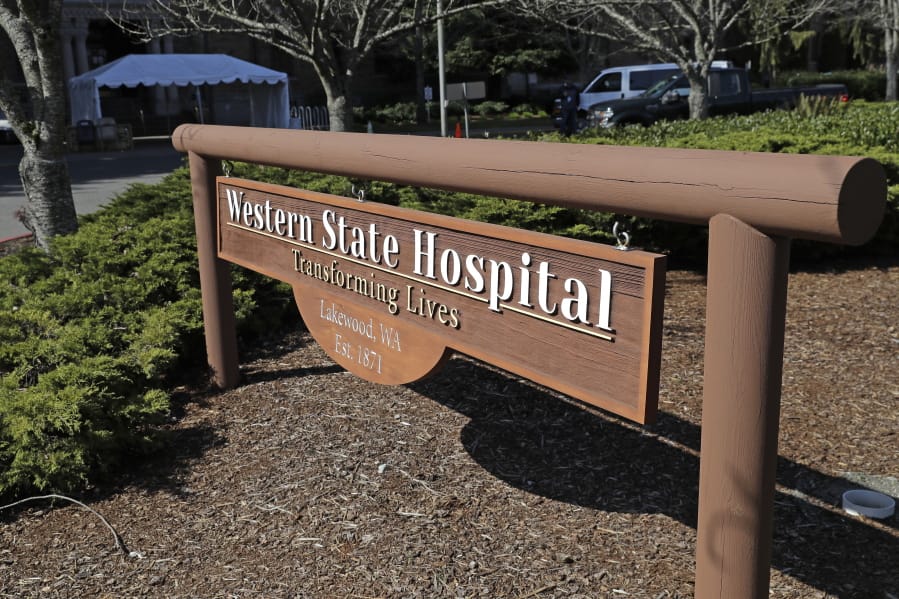“We are in a tough spot right now, no doubt,” Kevin Bovenkamp, the assistant secretary of the Washington Department of Social and Health Services acknowledged in federal court Wednesday, speaking about the lengthy delays people in jail are facing while waiting for beds at state psychiatric hospitals.
“You were in a tough spot eight years ago,” Judge Marsha J. Pechman of the U.S. Western District of Washington replied wryly.
Washington officials and advocates have been locked in a legal struggle for nearly a decade over how to ensure people with mental illnesses aren’t being warehoused in jails while their court cases stall. In four days of federal court testimony this week, advocates accused the state of not living up to its end of a settlement meant to resolve the issue.
Throughout the hearing, Pechman appeared frustrated with the state’s efforts. She reminded them that while the previous settlement established seven- to 14-day timelines for people to receive timely services, officials have in fact never been able to meet those timelines in the history of the case.
“Does anybody at DSHS think about the money?” Pechman asked, referencing the nearly $100 million in fines that have been leveraged against the state for their failure.
“Whose attention do I need to get?” she asked.
The Trueblood settlement, stemming from a civil dispute between DSHS and Disability Rights Washington, aimed to protect the constitutional rights of detained people with severe mental illnesses, by ensuring they could receive services that determine their competency to stand trial, as well as treatment.
The last settlement, which imposed the seven- to 14-day timelines, occurred in 2018. But earlier this year, plaintiffs with Disabilities Rights Washington accused state officials of being in breach of that agreement: According to the court monitor’s early data from April, people in jail are now waiting an average of 130 days before they’re admitted to a state facility for inpatient services.
Disabilities Rights Washington is asking the court to increase the state’s fines in order to bring them into compliance, as well as prevent certain lower level felony, misdemeanor and civil patients from taking up beds at state facilities. They are also asking DSHS to make plans to divert 90 civil patients from Western State Hospital to make room for people who fall under the settlement agreement.
At this week’s hearing, representatives for the state pointed to challenges they’ve faced in resolving the backlogs, including the effects of COVID-19, the time it takes to get new facilities up and running, and most importantly, the surging demand they’re facing from local jails.
That surge is largely due to county and municipal prosecutors creating a unique patient known as a “civil conversion,” where defendants switch from a criminal track to a civil one, and are committed to involuntary treatment. State facilities have struggled to keep up with the demand, and ultimately gave civil conversion patients priority for beds, instead of the criminal defendants who fall under the court settlement.
Snohomish, King and Pierce counties were represented as amicus curiae or friends of the court and complained that DSHS’ failures have affected local criminal legal systems across the state.
Pechman is expected to issue a ruling in the case in a couple of weeks, but could ultimately decide to force the state to pay increased fines, change who is accepted as a patient at Western State Hospital or come up with a new settlement agreement.
At one point, after suggestions from the counties, Pechman wondered out loud if she should force DSHS to purchase a hospital to deal with the backlogs. Earlier in the week, officials shared that they planned to tour Cascade Behavioral Health, a 137-bed facility, as a possible alternative to deal with the flow of patients coming from jails.
Dr. Danna Mauch, the federal court monitor assigned to the class-action settlement, testified that the current wait times for defendants are the longest she’s seen. She also pointed to 2022 data that found 55% of people at the heart of the case experience homelessness or are unstably housed.
State officials are asking that Pechman finds them not in breach of the settlement. On behalf of the counties, King County Deputy Prosecutor David Hackett asked the judge to reconsider the settlement, or to push state officials to speed up the construction of new facilities.
In a declaration submitted to the court, Hackett wrote, “King County consulted with a real estate broker and was readily able to find two properties that appeared suitable to provide inpatient mental health services. It took just a couple weeks to identify two properties,” remarking to the judge that DSHS has “not shown urgency” for the current crisis.



